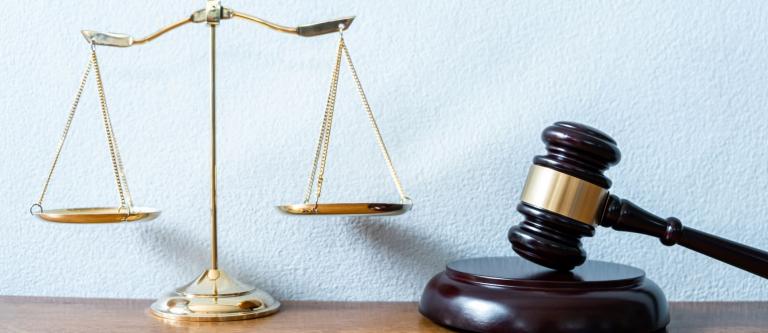
1. Hechos. La República Federal Alemana (RFA) encarga informes semanales de actualización sobre las actuaciones de sus fuerzas armadas en países extranjeros. Funke Medien, que gestiona el sitio web de un periódico alemán, solicitó acceso a los informes elaborados entre septiembre de 2001 y ese mismo mes de 2012. Tras haberse denegado su solicitud por el riesgo de perjudicar los intereses de seguridad de las fuerzas armadas, Funke Medien publicó gran parte de estos informes bajo el título de “Documentos de Afganistán”, que podían consultarse en su sitio web acompañados de un comentario introductorio, vínculos adicionales y una invitación a interactuar.
Por ello, la RFA interpuso una acción de cesación contra Funke Medien por vulneración de los derechos de propiedad intelectual sobre dichos informes. Esta demanda fue estimada en primera y segunda instancia, siendo el tribunal de casación el que remite las cuestiones prejudiciales al TJ.
2. Pronunciamientos. Antes de resolver las cuestiones prejudiciales el TJ advierte que una prestación únicamente puede encontrarse protegida por propiedad intelectual de ser considerada como una obra; para ello, debe ser original, es decir, producto de una creación intelectual propia de su autor, debiendo reflejar la personalidad de éste, lo cual se demuestra si ha podido tomar decisiones libres y creativas. Esta calificación como obra se reserva a los elementos que se consideren creativos. La determinación de los informes en cuestión como obras intelectuales queda al arbitrio del órgano jurisdiccional nacional.
La primera de las cuestiones prejudiciales está dirigida a determinar si, por un lado, los artículos 2 a) y 3.1 de la Directiva 2001/29 que confieren derechos exclusivos de reproducción y comunicación y, por otro, los apartados 2 y 3 del artículo 5 de ese mismo texto legal que prevé las excepciones a estos derechos exclusivos, tienen un margen de apreciación para su transposición al derecho nacional o si, por el contrario, pretenden la armonización completa de esos preceptos.
Con respecto a los artículos 2 y 3, el TJ considera que estas disposiciones definen claramente los derechos de reproducción y comunicación pública, sin hacerlos depender del cumplimiento de requisito alguno. Además, el TJ ha considerado previamente que estas disposiciones garantizan una protección elevada y homogénea de los derechos citados, por lo que estos artículos son medidas de armonización completa que no pueden modularse en su transposición.
Por el contrario, el artículo 5 de la Directiva no armoniza de forma completa el alcance de las excepciones y limitaciones que contiene, sino que su aplicación y transposición deberán valorarse caso por caso.
No obstante, el margen del que disponen los Estados miembros para aplicar los límites de aplicación en este supuesto se encuentran coartados por cuatro circunstancias.
1. Deberán aplicarse dentro de los límites del Derecho de la Unión, respetando los requisitos de la propia Directiva y los principios generales del Derecho de la Unión.
2. Ese margen de apreciación estatal no puede comprometer los objetivos de la Directiva, que en este caso son el establecimiento de un elevado nivel de protección para los autores y el correcto funcionamiento del mercado interior, respetando el justo equilibrio entre los titulares de derechos y los usuarios de estas prestaciones.
3. Los propios límites y excepciones se encuentran limitados por el artículo 5.5 de la directiva en el que se supedita la aplicación de un límite a un triple requisito, (i) que únicamente se apliquen en determinados casos concretos, (ii) que no entren en conflicto con la explotación normal de la obra y (iii) que no perjudiquen injustificadamente los intereses legítimos del titular de los derechos de autor.
4. Los Estados miembros deberán asegurarse de que la transposición de una directiva se realiza basándose en una interpretación de las excepciones y limitaciones que garantice un justo equilibrio entre los diferentes derechos fundamentales del ordenamiento jurídico de la Unión.
Una vez resuelto lo anterior, el Tribunal analiza la tercera cuestión prejudicial, en la que se cuestiona si la libertad de prensa e información pueden justificar una excepción a los derechos de reproducción y comunicación pública al margen de las excepciones del artículo 5.
El TJ indica que los límites aplicables al supuesto tienen por objetivo salvaguardar el equilibrio entre titulares de derechos y usuarios de prestaciones protegidas, que es uno de los objetivos de la directiva. Así, permitir que cada Estado miembro introduzca excepciones al margen de las ya previstas en la Directiva sería contrario al objetivo de armonización que pretende ésta, por lo que la libertad de prensa e información no justifican una excepción a estos derechos distinta a las contempladas en la directiva.
Se detiene por último el TJ en la segunda cuestión prejudicial, en la que el tribunal alemán se pregunta si es posible alejarse de una interpretación restrictiva en los límites aplicables al caso en favor de una interpretación que tenga plenamente en cuenta la necesidad de respetar la libertad de expresión e información.
Considera el TJ que los órganos nacionales deben interpretar su derecho nacional de conformidad con la Directiva y respetando los derechos fundamentales y principios consagrados en la Carta de Derechos Fundamentales de la Unión.
Aunque una excepción a la regla general debe ser interpretada restrictivamente, también debe respetar la finalidad de la misma y salvaguardar su efecto útil, por lo que en este caso la ponderación entre propiedad intelectual y libertad de expresión habrá de tener en cuenta si el discurso o información en cuestión tienen especial importancia.
Así, el TJ considera que, de considerar el tribunal nacional que los informes son obras, la publicación de estos podría quedar comprendida en el ámbito de aplicación del límite del artículo 5, apartado 3, letra c) de la Directiva, si concurren los demás elementos exigidos por este límite.
3. Comentario. La amplitud de la regulación de los límites y excepciones a los derechos de propiedad intelectual justifican plenamente la imposibilidad de extender esta lista en función de las decisiones de cada Estado miembro de la UE. La ya escasa armonización en este apartado quedaría desvirtuada por completo de haber decidido el TJ en forma distinta a la de esta sentencia.
Por desgracia, el TJ no se pronuncia sobre la posibilidad de que los informes en cuestión puedan ser calificados como obras, aunque sí incluye una breve reflexión acerca de los requisitos para considerar una obra como original. Esta circunstancia es la que evita que el TJ se pronuncie también sobre la aplicabilidad de un límite a estos informes, pues quedaría sujeta a su protección como obra, lo cual resulta discutible a priori.
Autora: Martín BELLO . Anuario, Edición 2019 (recopilatorio de comentarios de jurisprudencia europea en materia de Derecho de Propiedad Industrial e Intelectual que realiza Elzaburu.
Acceda al Texto de la sentencia EDJ 2019/652264 STRIBUNAL DE JUSTICIA (UE) (GRAN SALA) DE 29 JULIO DE 2019 proveniente de la base de datos NEO. Más información y posibilidad de probar gratuitamente el producto en https://www.efl.es/catalogo/bases-de-datos-juridicas-neo
Versión en inglés:
Not possible to implement limitations to copyright not contemplated in Directive 2001/29. Judgment of the Court of Justice of 29 July 2019, Funke Medien (C-469/17)
1. Background. The Federal Republic of Germany (FRG) prepares weekly status reports on the actions of its armed forces abroad. Funke Medien, which operates the website of a German newspaper, applied for access to the reports drawn up between September 2001 and September 2012. After its application was refused on grounds that it could have adverse effects on the security interests of the armed forces, Funke Medien published a large proportion of these reports under the title “the Afghanistan papers”, which could be read on its website accompanied by an introductory note, additional links and a space for comments.
Therefore, the FRG brought an action for an injunction against Funke Medien for infringement of the copyright over the reports. This action was upheld at first and second instance, and it is the Federal Court of Justice that has referred questions to the Court of Justice for a preliminary ruling.
2. Findings. Before addressing the questions referred for a preliminary ruling, the Court of Justice points out that subject matter can only be protected by copyright if it can be classified as a ‘work’. To be classified as such, it must be original, that is, it must be its author’s own intellectual creation, and it must reflect the author’s personality, which is the case if the author was able to make free and creative choices. This classification as a ‘work’ is reserved for elements that are considered creative. It is for the national court to determine whether the reports in question may be regarded as ‘works’ that may be protected by copyright.
The first of the questions referred for a preliminary ruling is aimed at determining whether Articles 2(a) and 3(1) of Directive 2001/29, which confer the exclusive rights to reproduce and publicly communicate, on the one hand, and Article 5 (2) and (3) of the same Directive, which set out the exceptions or limitations to these rights, on the other, allow any latitude in terms of implementation in national law, or whether full harmonisation of these principles is intended.
With respect to Articles 2 and 3, the Court of Justice finds that these provisions clearly define the rights to reproduce and publicly communicate, and the rights are not made subject to fulfilment of any requirement. Moreover, the Court of Justice has previously held that these provisions ensure a high and even level of protection for the aforesaid rights and, therefore, these articles constitute measures of full harmonisation which cannot be modulated when transposed into national law.
On the other hand, Article 5 of the Directive does not constitute full harmonisation of the scope of the exceptions or limitations which it contains. Their application and transposition must be determined on a case-by-case basis.
Nevertheless, the Member States’ discretion to apply the exceptions or limitations in this case is circumscribed in four different respects.
1. Implementation of exceptions or limitations must be exercised within the limits imposed by EU law, respecting the requirements of the Directive itself and the general principles of EU law.
2. The discretion enjoyed by Member States in the implementation of exceptions and limitations cannot compromise the objectives of the Directive, namely, establishing a high level of protection for authors and ensuring the proper functioning of the internal market, respecting the fair balance of rights between rightholders and users of the subject matter.
3. The discretion in implementing the limitations and exceptions is also circumscribed by Article 5(5) of the Directive, which makes application of limitations subject to three conditions, namely, (i) that they may only be applied in certain specific cases, (ii) that they do not conflict with a normal exploitation of the work, and (iii) that they do not unreasonably prejudice the legitimate interests of the copyright holder.
4. Member States must ensure that when transposing a directive, they rely on an interpretation of the exceptions and limitations which permits a fair balance between the different fundamental rights protected by the legal order of the EU.
Having pronounced its findings on the above points, the Court of Justice analyses the third question, namely, whether freedom of the press and freedom of information can justify exceptions to the rights to reproduce and publicly communicate, beyond the exceptions provided for in Article 5.
The Court of Justice states that the purpose of the limitations applicable in this case is to safeguard the fair balance between the rights and interests of rightholders and those of users of protected subject matter, which is one of the aims of the directive. Thus, to allow each Member State to implement exceptions beyond those provided for in the Directive would be contrary to the harmonisation objective pursued by the Directive. Therefore, freedom of the press and freedom of information cannot justify an exception to these rights beyond the exceptions already provided for in the Directive.
Lastly, the Court of Justice addresses the second question, in which the German referring court asks whether it is possible to depart from a restrictive interpretation of the applicable limitations in favour of an interpretation which takes full account of the need to respect freedom of expression and freedom of information.
The Court finds that the national authorities and courts must interpret their national law in a manner consistent with the Directive, while respecting the fundamental rights and principles enshrined in the Charter of Fundamental Rights of the European Union.
Although exceptions to the general rule must be interpreted restrictively, the interpretation must also respect their purpose and safeguard their effectiveness. Therefore, in this case, when striking a balance between copyright and the right to freedom of expression, it is necessary to take into account whether the ‘speech’ or information in question is of particular importance.
Thus, the Court of Justice finds that if the national court considers that the reports are to be regarded as works, the publication of the reports may fall within the scope of application of the limitation provided for in Article 5(3)(c) of the Directive, provided that the other conditions established therein are satisfied.
3. Remarks. The broad scope of the regulation of the exceptions and limitations to copyright fully justifies not permitting the list of exceptions and limitations to be extended on the basis of decisions of each Member State of the EU. The already limited degree of harmonisation in this area would have been completely undermined if the Court of Justice had ruled otherwise.
Unfortunately, the Court of Justice has not made any pronouncement as to whether the reports in question may be regarded as works, although it does include brief comments on the requirements for a work to be considered original. This prevents the Court from additionally making a pronouncement on whether a limitation is applicable to these reports, since it would be dependent on whether they may be protected as works, which, in principle, is debatable. Martín BELLO
ElDerecho.com no comparte necesariamente ni se responsabiliza de las opiniones expresadas por los autores o colaboradores de esta publicación









